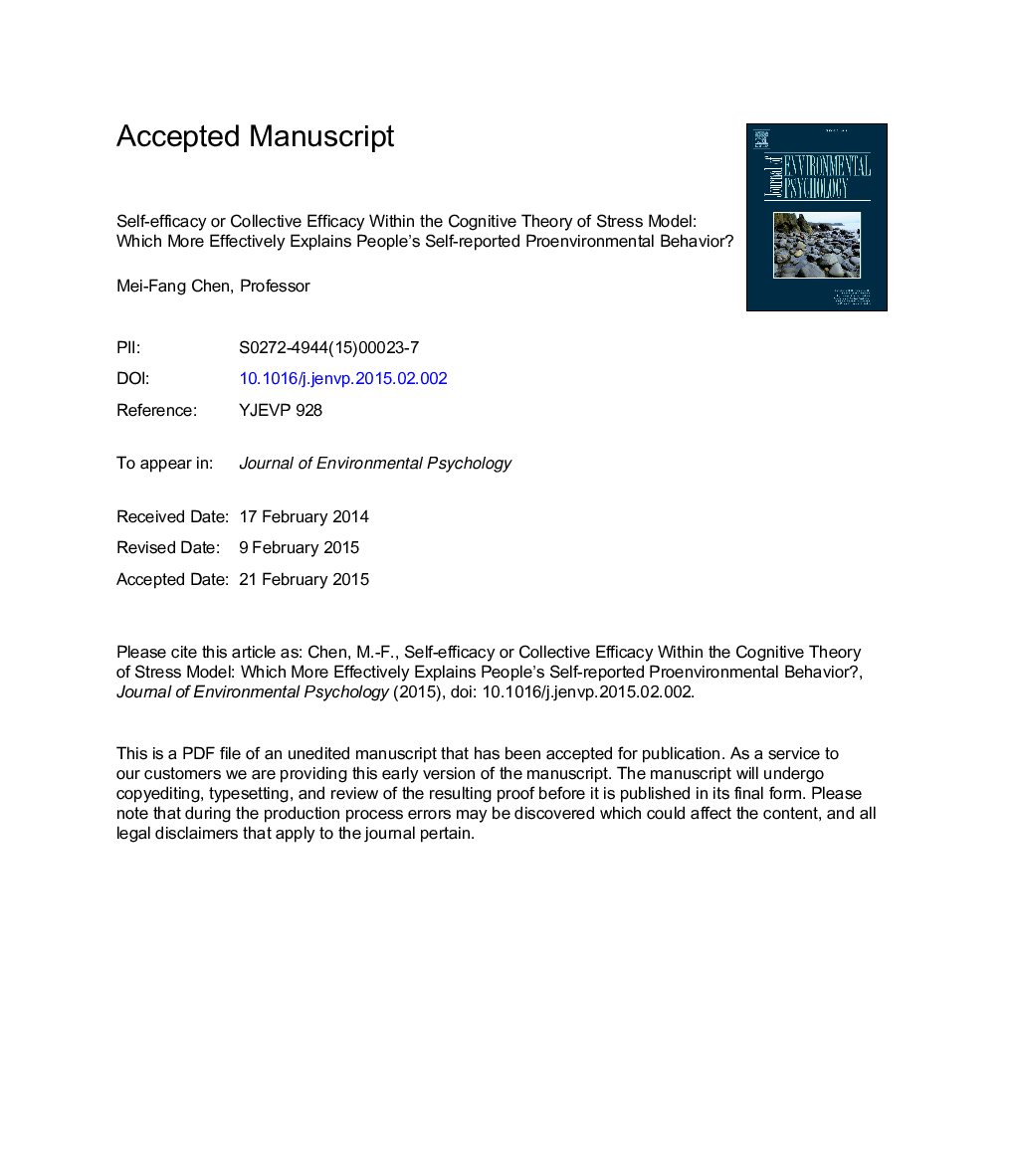| Article ID | Journal | Published Year | Pages | File Type |
|---|---|---|---|---|
| 7245791 | Journal of Environmental Psychology | 2015 | 42 Pages |
Abstract
This study ascertained whether self-efficacy and collective efficacy in the cognitive theory of stress model explains people's self-reported proenvironmental behavior more effectively separately or in combination. A questionnaire study was conducted among 707 Taiwanese respondents. The results of structural equation modeling analysis corroborated previous findings that the cognitive theory of stress model can be applied to environmental problems to effectively explain people's self-reported proenvironmental behavior. Moreover, compared with self-efficacy, collective efficacy is a stronger predictor of people's problem-focused coping and self-reported proenvironmental behavior for respondents in this collectivist cultures; failing to include collective efficacy in the cognitive theory of stress model can reduce the power of the model to explain such behavior. The research results regarding the external validation and internal validation of the cognitive theory of stress model were elaborated in this study to more effectively understand people's self-reported proenvironmental behavior.
Related Topics
Social Sciences and Humanities
Psychology
Applied Psychology
Authors
Mei-Fang Chen,
